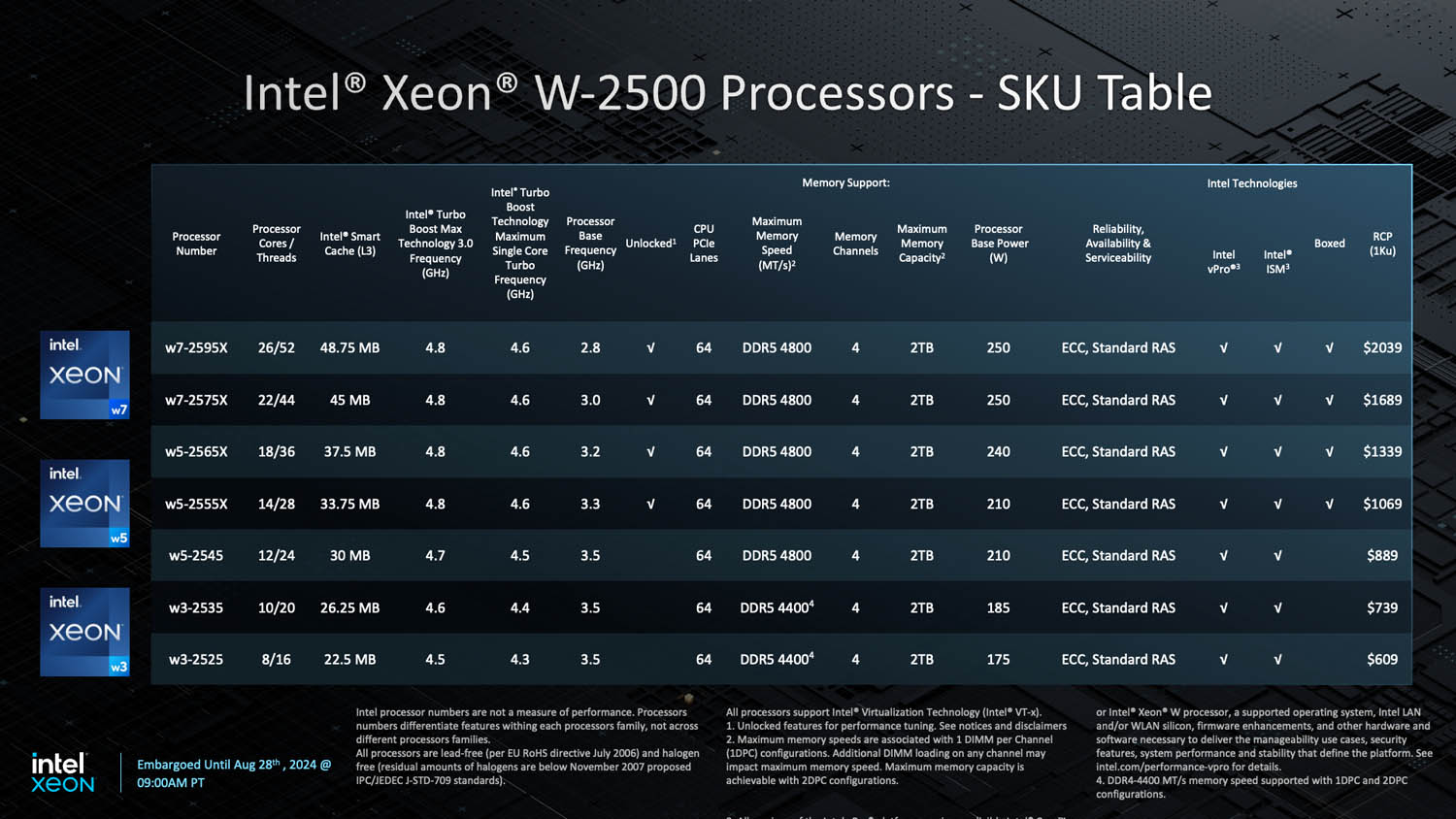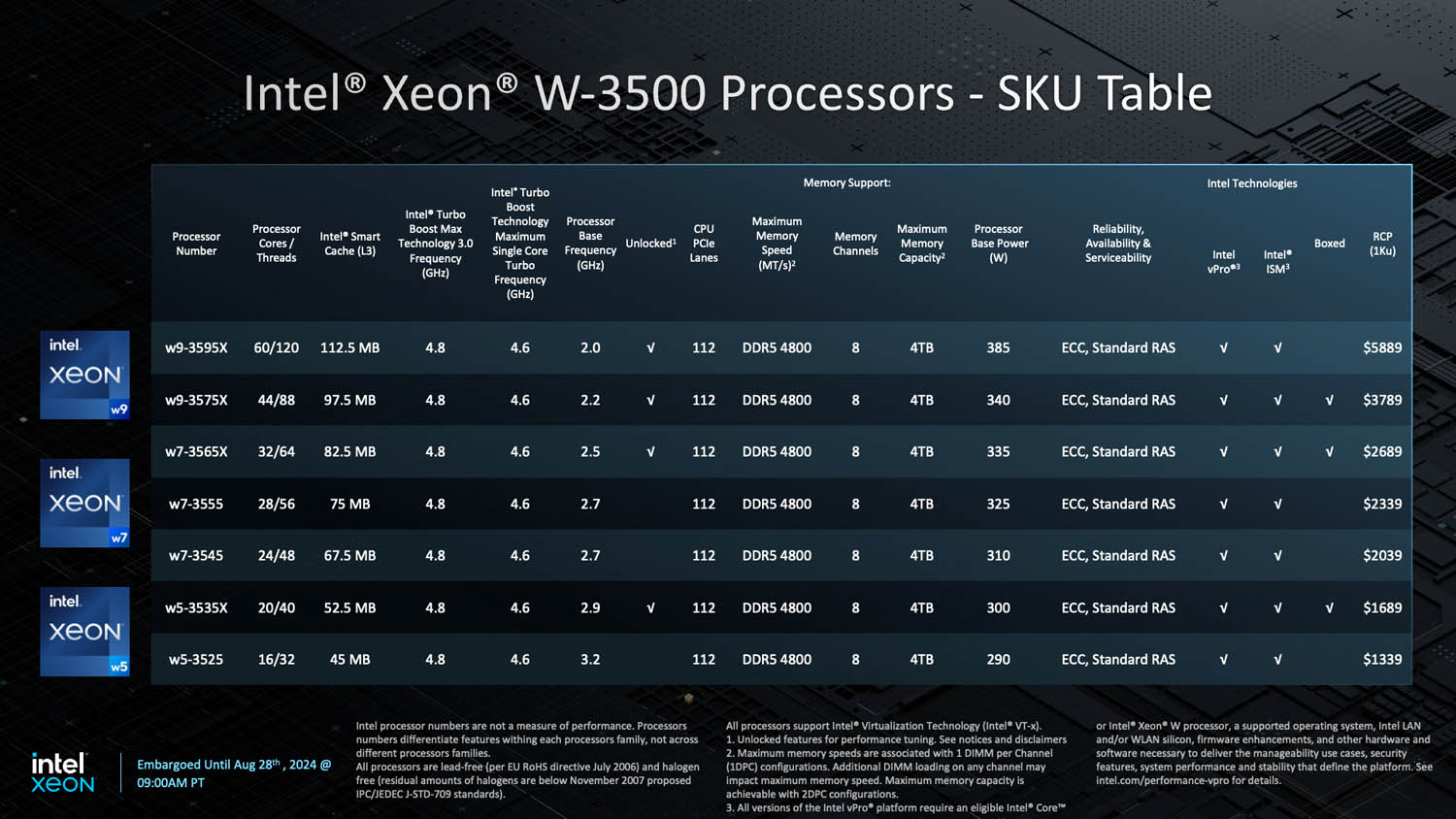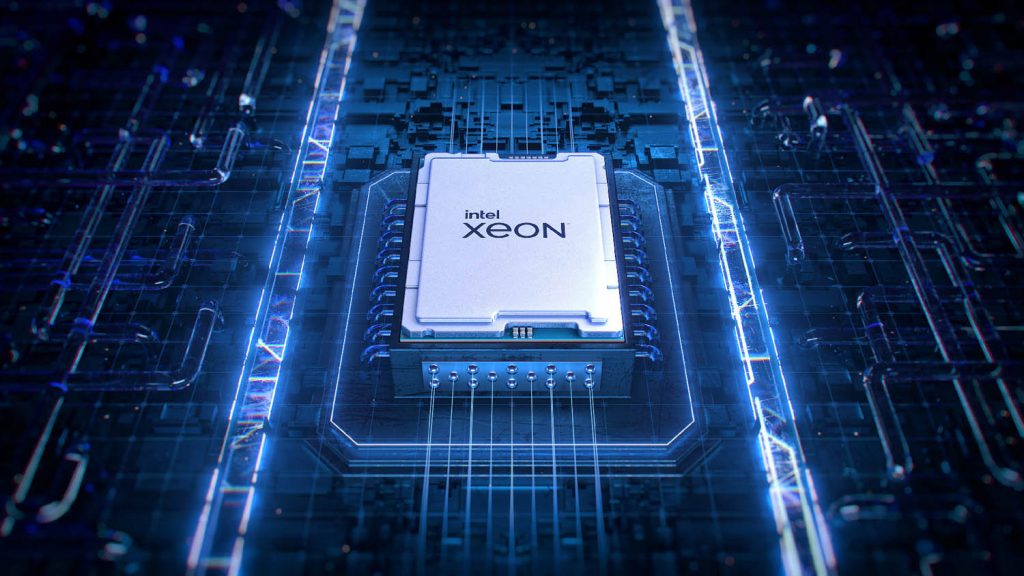Intel Xeon W-2500 and Intel Xeon W-3500 Series deliver small bump in cores, base frequency, cache and power
Intel has ‘refreshed’ its Sapphire Rapids workstation processors with the launch of the Intel Xeon W-2500 and Intel Xeon W-3500 Series.
While these new chips share much of the same architecture as the 2023 models—the Intel Xeon W-2400 and W-3400—they offer a few key enhancements. These include more cores at each price point, a slight increase in cache, and a modest boost in base frequency, though turbo frequencies remain unchanged.
At the top end, the new Intel Xeon w7-2595X boasts 26 cores, two more than its predecessor, the w7-2495X. Similarly, the Intel Xeon w9-3595X features 60 cores, a four-core increase over the w9-3495X from 2023.


With these additional cores comes an increase in base power consumption. The new processors are rated between 20 W to 35 W higher than their predecessors, with the Intel Xeon w9-3595X reaching 385 W base with a maximum turbo power of 462 W.
However, according to Intel, despite this rise, its OEM partners – Dell, HP, Lenovo and others – have not needed to make any changes to the thermal management of their workstations and that the new chips will be ‘drop in compatible’ with existing Sapphire Rapids workstations.
What AEC Magazine thinks
Intel’s refreshed Sapphire Rapids workstation processors bring only modest improvements in core count, base frequency, and cache size, making it hard to envision a substantial performance boost over the original Sapphire Rapids CPUs.
However, Intel’s key focus seems to be on upgrading users who invested in workstations built around 2019’s Cascade Lake Xeons, rather than those who bought into Sapphire Rapids in 2023.
The real challenge for Intel is the competition from AMD’s Ryzen Threadripper Pro. Based on our testing of both the original Sapphire Rapids workstation processors and the latest AMD Ryzen Threadripper Pro 7000 Series which offers up to 96-cores, it’s unlikely that Intel’s new Xeons will outperform AMD in terms of raw performance or performance per watt. However, Intel might still compete on price / performance, especially with the variety of models available in the Xeon W-2500 and W-3500 families.






